In the era of #MeToo, the way by which R. Crumb was commissioned to design the cover for the iconic second LP from Big Brother and the Holding Company, Cheap Thrills, would land him in some serious hot water in the scorching climate of political correctness. But in the swingin’ ’60s, it was the proposition of the cartoonist being able to cop a feel on Janis Joplin that made him agree to take the gig.
In his 2004 book Comix: The Underground Revolution, author Dez Skinn recounts the story with Big Brother roadie Dave Richards, whose chance meeting with Crumb provided the band the opportunity to hire him for the cover.
“‘Yeah, I’ll do your album cover, but the only thing is when I meet Janis I want to be able to pinch her tit,’” Richards recalls to Skinn what the artist said to him.
When Joplin and Crumb finally met at a party, Richards reveals he saw the grab go down. “She just looked at him and said, ‘Oh, honey!’ and Crumb was delighted,” the roadie told Skinn.
“The woman on the Cheap Thrills jacket is Crumb’s idealization of Janis as the ultimate hippie chick,” explained Big Brother guitarist Sam Andrew in Comix. “With proud, ripe buttocks and jutting nipples.”
In 1995’s The R. Crumb Coffee Table Art Book, Crumb himself doesn’t directly admit to the cheap thrill he himself enjoyed for taking the gig, but in a handwritten note that appears opposite of the album cover in the book, he conceded that the sexually charged atmosphere of Haight-Ashbury was indeed a factor in his decision to draw the jacket. He also reveals it was Janis who directly hired him as well.
Listen to the opening track on Cheap Thrills, “Combination of the Two”
“Janis liked Zap Comix and Snatch Comix,” he wrote in his distinctive penmanship. “My comics appealed to the hard-drinking, hard-f**king end of the hippie spectrum as opposed to the spiritual, Eastern-religious, lighter-than-air type hippie. Janis asked me to do an album cover. I liked Janis OK and I did her cover. I took speed and did an all-nighter. The front cover I designed wasn’t used at all. They used the back cover for the front. I got paid $600. The album cover impressed the hell out of girls much more so than the comics. I got a lot of mileage out of that over the years!”
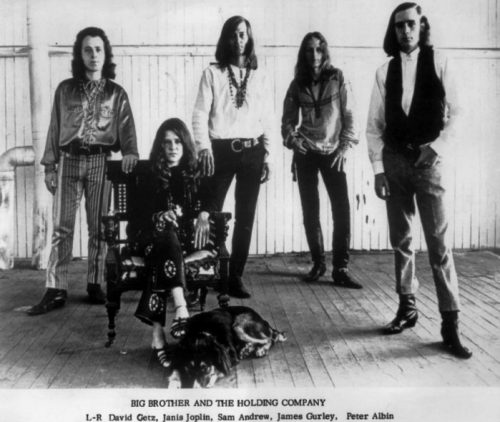
Big Brother and the Holding Company in a publicity photo (l. to r.): David Getz, Janis Joplin, Sam Andrew, James Gurley, Peter Albin.
The Big Brother Cheap Thrills album cover arrived on August 12, 1968. It would be the only rock album for which Crumb would do the art, though over the years he’s provided beautiful covers for a wide range of jazz, blues, country and folk, compiled in the must-own 2011 anthology R. Crumb: The Complete Record Cover Collection. But in the 50 years since it was released on that hot and crazy August day in 1968, Crumb’s iconic 17-panel cover art (18 if you count the Hell’s Angels Frisco seal of approval he added) has served as a beacon of inspiration for at least three generations of underground comic book artist who saw their twin loves for music and animation converge in an orgy of bold reds, blues, yellows, greens and browns in the artist’s distinctive style.
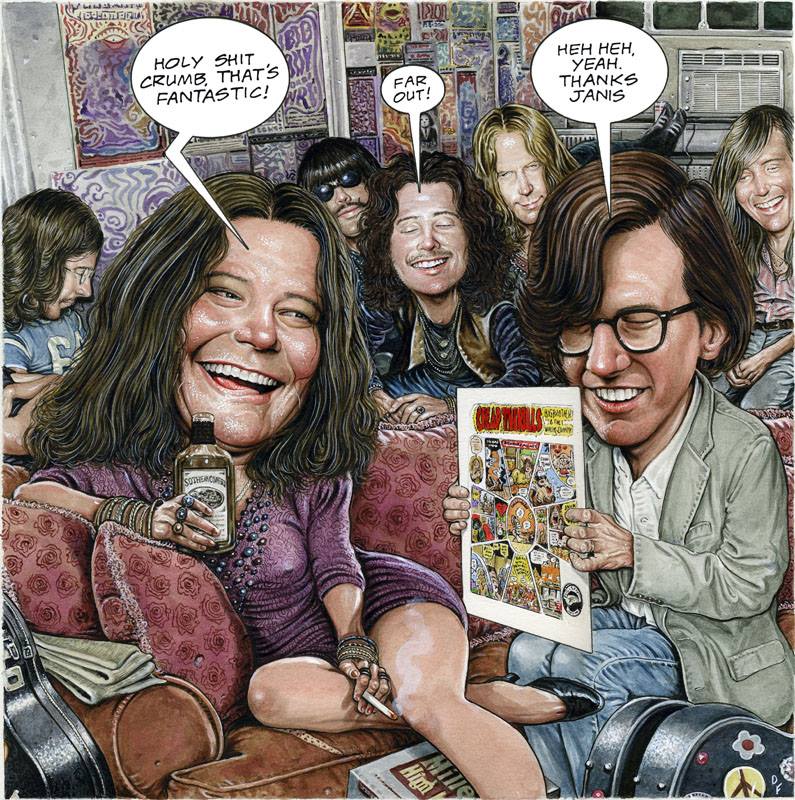
Artist Drew Friedman imagines the moment when Janis and Big Brother see the Cheap Thrills cover for the first time (Art by Drew Friedman; used with permission)
“I bought Cheap Thrills completely for the cover art,” admits renowned cartoonist Drew Friedman, a pioneer in the stippling method of drawing, whose depiction of the imagined moment when Crumb presents Big Brother with the album artwork is featured in his 2010 book Too Soon? Celebrity Portraits. “I would just stare at it, and stare at the detail. And I would only listen to the songs to compare them to the illustrations, and the cover art just enhanced the music for me. It was that period after Sgt. Pepper when everybody was trying to outdo themselves with the album covers, and Cheap Thrills sits right in there with the best of them, because it was the first comic strip used for an album cover. For the painting I did, I actually redrew the whole cover, but only a smaller version at a three-quarter angle. That took longer than the actual piece (laughs).”
For anti-folk great Jeffrey Lewis, a highly regarded comic book artist when he’s not making killer albums for the Rough Trade label, it was during his teen years when he stumbled upon the cover art for Cheap Thrills.

Janis Joplin, Big Brother and The Holding Company. Opening night of the Fillmore East, NYC, 1968. (Photo © Elliott Landy; used with permission)
“I grew up with hippie parents so there was always some Crumb imagery around the house; my mom probably had a Mr. Natural t-shirt, stuff like that,” he recalls. “As a kid I didn’t think of it as ‘Crumb stuff,’ it was like ‘grown-up stuff.’ I was into comic books from a young age, so to me it was like, ‘There’s that weird yucky grown-up cartoon stuff, that’s boring; Rom and Spiderman and Hulk are obviously much better.’ I don’t remember if my parents had the Cheap Thrills LP; I don’t remember hearing it. When I got into ’60s music as a teenager there was a record store on St. Marks Place [in NYC] that had a poster on display with a whole bunch of ’60s LP sleeves pictured. It had Cheap Thrills on it, and Jefferson Airplane’s Crown of Creation LP, and the first It’s a Beautiful Day album cover, and maybe 10 others. And to me that poster became like a checklist, with no other info provided; I just knew that poster was all albums that I would have to find and check out. I loved all the colorful psychedelic hippie imagery, and Cheap Thrills was a great example.”
For Peter Bagge, creator of the award-winning comic book series Hate, it was Cheap Thrills that he believes could have served as his introduction to Crumb, alongside whom he would work at Weirdo Magazine in the early ’80s, eventually taking over the reins as editor in 1983.
“It may have been the first time I saw Crumb’s art, though it would have been around the same time I saw ‘Keep on Truckin’’’ posters and t-shirts here and there,” he admits, “1969 or ’70 or so. I lived in the outer ’burbs, so there was some lag time between what people were seeing in the hip inner city neighborhoods and when I’d lay eyes on it (if ever). What did I think of it? I loved it—Crumb’s art, that is. It was right up my alley—somewhat Mad [Magazine]-like, in that I saw a [Basil] Wolverton influence, but it also was some weird mixture of ‘old fashioned’ and subversive coolness.”
Listen to “Piece of My Heart” from Cheap Thrills
The vibrant, controversial and engrossing imagery of Robert Crumb’s Cheap Thrills cover art continues to serve as an everlasting psychedelic timestamp of one crazy summer. And while the artist himself might have written it out of his own legacy a long time ago, the impact of that record cover on the evolution of comic book art and music’s place within that world in the 20th and 21st centuries could never have trucked on without it.
Watch a live version of the album’s “Ball and Chain”
The album, and other Joplin recordings, are available in the U.S. here, in Canada here and in the U.K. here. R. Crumb’s books are available here.
Related: When Janis and Big Brother rocked “Ball and Chain” at the Monterey Pop Festival

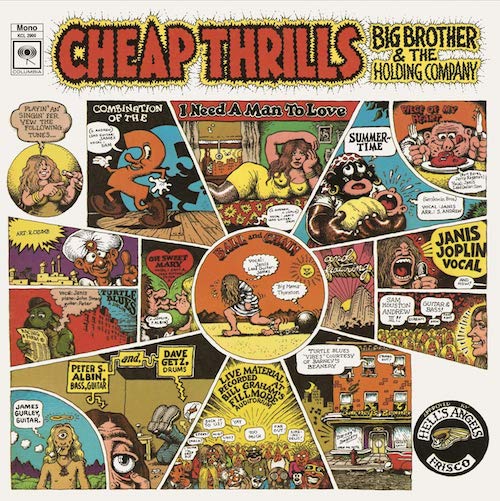
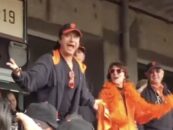
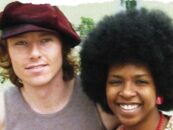
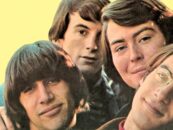
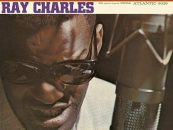

1 Comment so far
Jump into a conversationAny chance we could get a look at what that original R. Crumb front cover design looked like?